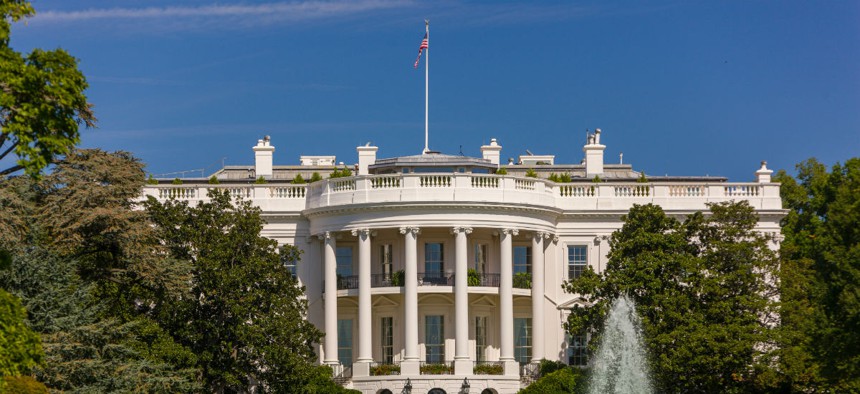
By Rob Crandall / Shutterstock.com
Hope for Reforming Government in Polarized Times?
Margaret Weichert says she values the advice of former OMB deputy directors for management.
President Trump’s point person for government reform—the busier-than-ever Margaret Weichert—acknowledged earlier this week that she is “standing on the shoulders of giants.”
During a week packed with speeches and duties for her new part-time role as acting director of the Office of Personnel Management, Weichert on Wednesday appeared with three of her predecessor White House deputy directors for management on a panel organized by the IBM Center for the Business of Government.
The veteran of private-sector software entrepreneurship said she valued the advice now readily available from the “community of former deputy directors for management.” They were represented on the stage by Andrew Mayock from the Obama administration, Clay Johnson III from the George W. Bush administration and Sally Katzen from the Clinton administration.
The Trump team shouldn't “look a gift horse in the mouth” by arbitrarily rejecting predecessor projects, Weichert said, citing the Obama-created U.S. Digital Service as an example. Such “vehicles left behind are tools, and what I bring to the table is enabled by all these things,” she said.
Asked how she might work to design Trump-era reforms that would survive under the next administration, she acknowledged that it “will be in the purview” of a new administration to change course “when the quadrennial wind sweeps in.” But, she added. “if the work product is good enough and they see value,” the future administration may “keep some of it, or tweak it, as is their right.”
Weichert commended federal employees as the “brand actors and storytellers, an emblem of what we do,” adding that “it was a pleasant surprise to see how much appetite there is for change in the workforce.”
Not to be passed over for praise were the sponsors and primary attendees of the event, the “community of folks in the good-government arena who provide advice,” Weichert said. “It makes me feel good in this time of divisive political rhetoric that there is cooperation on the president’s management agenda. It gives me great hope.”
The purpose of the IBM Center gathering was to mark the academic research group’s 20th anniversary on the Washington scene and release a new essay collection, “Government for the Future: Reflection and Vision for Tomorrow’s Leaders,” edited by Mark Abramson, Daniel Chenok and John Kamensky.
Its contributors—former federal officials and academics—seek to link efforts at reform over the past two decades with prescriptions for what a coming higher-tech, more-data-driven, citizen-engaged government will look like (or ought to) in 2040.







